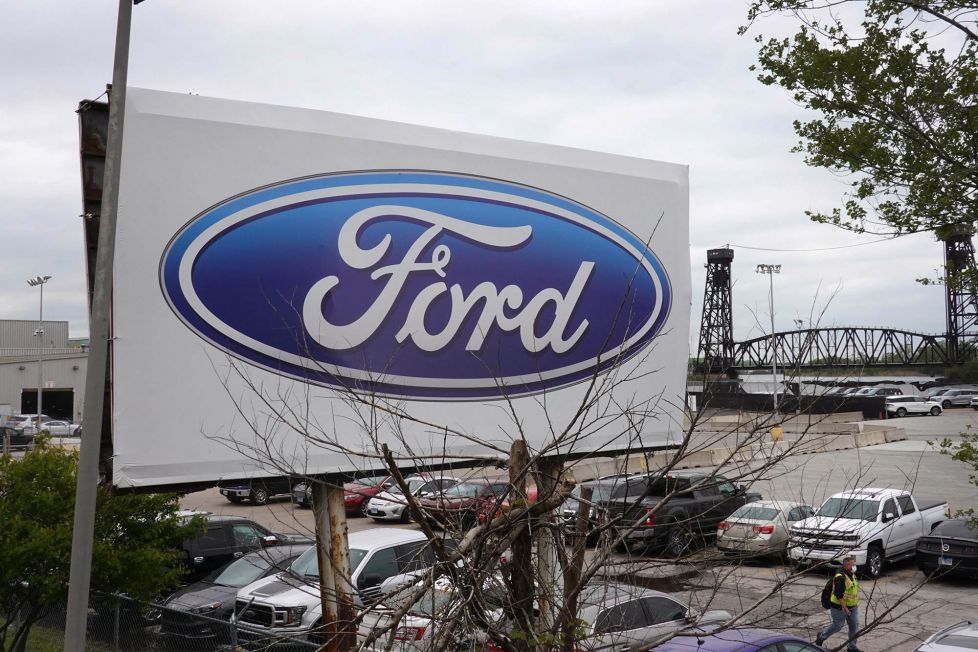
Just days after reopening its American assembly plants, Ford temporarily packed up two separate factories because employees tested positive for Covid-19.
One plant in Chicago that builds the Ford Explorer, the Lincoln Aviator and the Ford Interceptor police car halted operations Tuesday afternoon after two employees tested positive for Coronavirus. Then, Ford’s plant in Dearborn Michigan that manufactures its bestselling F-150 pickup, shut down Wednesday.
Both plants, as well as other Ford plants across four Midwest states — resumed production Monday after suspending production for about two months because of health concerns.
This week’s stoppages were expected to be brief — the Chicago plant restarted operating Wednesday morning, and the Dearborn plant was expected to restart operations later Wednesday night. Still, the temporary shutdowns are a symbol of the difficulty of operating factories while complying with increased safety measures put in place to deal with the crisis.
The Chicago assembly plant briefly suspended operation a second time Wednesday afternoon, due to shortage of parts from a supplier, according to Ford. The Ford Chicago plant was expected to resume production Wednesday evening. The disruption of Ford’s supply chain was caused when the supplier, Lear, confirmed one of its employees at a plant in Hammond, Indiana, just over the state line from Chicago, had tested positive for Coronavirus.
“The facility has temporarily stopped production for deep cleaning and disinfection, and we have notified our plant team members, UAW partners and our customer,” said Lear in a statement.
Even the partial-day shutdowns at random plants shows how difficult it will be for automakers to restart operations while dealing with the crisis, said Kristin Dziczek, VP of industry, labor & economics at the Center for Automotive Research, a Michigan think tank. She said many of the auto plants that restarted operations in Asia have been forced to close, at least temporarily.
“There are three things that have to all come together. You have to have a healthy work force, a healthy supply chain and healthy demand,” she said. “It’s not just flip a switch and everything is as it was. It’s very complicated.”
Ford began screening employees’ temperatures when it reopened its plants, and it requires medical tests for workers who show symptoms. The two positive test results in Chicago came back on Tuesday, resulting in an afternoon shutdown. The end of the day shift and part of the night shift were lost.
“When two employees who returned to work this week tested positive for Covid-19, we immediately notified people known to have been in close contact with the infected individuals and asked them to self-quarantine for 14 days,” said Kelli Felker, a spokesperson for Ford. “We also deep cleaned and disinfected the work area, equipment, team area and the path that the team member took.”
The same procedure was followed at Dearborn Truck when the positive result came back Wednesday, she said.
Felker said the infected employees worked in a separate building about a mile from the main assembly line at the plant. But because parts from those employees’ building are needed at the main assembly line, the entire complex was shut down.
Ford has about 5,800 employees at the Chicago assembly complex. A separate Chicago stamping plant with just more than 1,000 employees remained open. It has 4,400 employees at Dearborn Truck.
Felker said Ford is confident that the affected employees at both plants had the virus before they came back to work due to of coronavirus’ incubation time.
“Our protocols are in place to help stop the spread of the virus,” she said.
The United Auto Workers union, which represents hourly workers at Ford, General Motors and Fiat Chrysler, issued a statement about the situation in Chicago: It “continues to aggressively monitor the implementation of health and safety protocols to protect our member, their families and their communities.”











